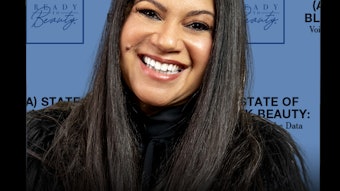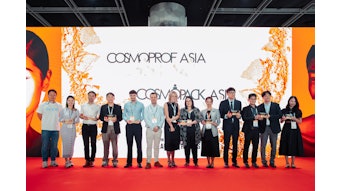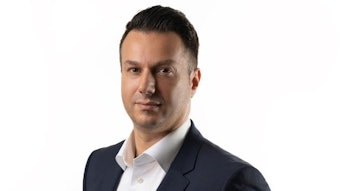On March 19, 2014, the L’Oréal Foundation and UNESCO will present the L’Oréal-UNESCO For Women in Science awards to five outstanding women scientists. Each woman represents a unique career path combining exceptional talent, a deep commitment to her profession and remarkable courage in a field still largely dominated by men.
On March 19, a press conference will take place at 14 rue Royale in Paris with the five laureates and fifteen international fellows in attendance. It will reveal the findings of a report on the current status of women in science. Compiled by the Boston Consulting Group for the L’Oréal Foundation, the status report addresses the under representation of women in the scientific professions and underscores the fact that the situation has improved only slightly over the past 10 years.
Then, on the evening of March 19 at the Sorbonne in Paris, the L’Oréal-UNESCO For Women in Science 2014 Awards Ceremony will be held in honor of the five laureates and fifteen international fellows. It will be presided over by Professor Günter Blobel, winner of a Nobel Prize in Medicine. Also, Irina Bokova, director-general of UNESCO, and Jean-Paul Agon, chairman and CEO of L’Oréal and chairman of the L’Oréal Foundation, will be in attendance.
Throughout the program’s 16-year history L’Oréal and UNESCO have worked to support the advancement of women researchers. Every year the program pays tribute to exceptional women scientists and highlights their contributions to changing the world. Since 1998 the program has recognized more than 2,000 women around the globe (82 laureates, including two who later won the Nobel Prize, and 1,920 fellows).
The awardees are honored for major scientific advancements that are helping solve some of society’s greatest challenges, including cancer, depression and addiction. Candidates for the L’Oréal-UNESCO For Women in Science Awards were nominated by a network of more than 1,000 international scientists. The five laureates were then selected by an independent jury chaired by Professor Blobel and composed of 12 eminent members of the international scientific community.
- Professor Brigitte Kieffer, neurobiology—Representing Europe, Kieffer is a p rofessor at the University of Strasbourg, France; research director at the Institut de Génétique et de Biologie Moléculaire et Cellulaire (IGBMC) in Illkrich, France; and scientific director of the Douglas Institute Research Center at McGill University in Montréal, Canada. Named to the French Academie des sciences in December 2013, she is being honored for her decisive work on the brain mechanisms involved in pain, mental illness and drug addiction. In 1992, she was the first to clone and isolate the gene for an opioid receptor in the brain that plays a key role in alleviating pain, a puzzle which scientists around the world had been attempting to solve for the previous fifteen years. Her findings led the way to new treatments for fighting pain, addiction and depression.
- Professor Laurie Glimcher, immunology and medicine—Representing North America, Glimcher is the Stephen and Suzanne Weiss dean of the Weill Cornell Medical College in New York; and provost for medical affairs for Cornell University in Ithaca, New York. The first woman dean of a medical school in New York, Glimcher is a worldwide pioneer and leader in the field of immunology. She is being honored for discovering key factors involved in controlling immune response (T-bet) in allergies and in autoimmune, infectious and malignant diseases. Her findings are paving the way for the development of new treatments for allergies, asthma, multiple sclerosis, childhood diabetes and cancer.
- Professor Cecilia Bouzat, biophysics—Representing Latin America, Bouzat is a member of the National Scientific and Technical Research Council (CONICET) in Buenos Aires; a professor at the Universidad Nacional del Sur in Bahia Bianca; and the deputy director of the Institute of Biochemical Research of Bahia Bianca (INIBIBB) in Argentina. Named a national fellow by Argentina’s L’Oréal-UNESCO For Women in Science Jury in 2007, Bouzat is now an international leader in neurotransmitter pharmacology. She is being honored for her contribution to our understanding of how brain cells communicate among themselves and with muscles. Her world-renowned discoveries enabled the identification of the communications problem between the brain and muscles that causes major neurological disorders. Her work has opened the door to potential new treatments for Alzheimer’s disease, depression and certain addictive behaviors.
- Professor Kay Inaba, immunology and medicine—Representing Asia-Pacific, Inaba is a professor at the Graduate School of Biostudies at Kyoto University in Japan; and vice president for gender equality and director of the Center for Women Researchers at Kyoto University. The first female associate professor at Kyoto University’s faculty of science and deeply committed to bringing more women to scientific research, Inaba is being honored for her critical discoveries concerning the mechanisms triggered by the immune system when it is faced with a threat such as a virus or bacteria or by abnormal cells such as cancer cells. Specialized in the study of dendritic cells, Inaba was the first scientist to prove that these cells could be treated outside the body and then reintroduced into the organism to stimulate immune system response. Her discovery marked a turning point in cellular therapy and has already led to a new type of anti-cancer treatment.
- Dr. Segenet Kelemu, biology and plant pathology—Representing Africa and the Middle East, Kelemu is director general of the International Center for Insect Physiology and Ecology (ICIPE) in Nairobi, Kenya. The first woman from her region to attend what was then Ethiopia’s only university, Kelemu is being honored for her research on how microorganisms living in symbiosis with forage grasses can improve their capacity to resist disease and adapt to environmental and climate change. Her work is providing new solutions for ecologically responsible food crop production, especially by local, small-scale farmers. After having studied in the U.S. and worked in Colombia, she returned to Africa and is now at the heart of an impressive international scientific research network.
Beginning March 14, 2014, passengers from around the world in all terminals of the Charles de Gaulle and Orly airports in Paris will find portrait exhibits of the five laureates by American photographer Julian Dufort. The photographer immersed himself in each laureate’s daily routine in order to truly represent the reality of their lives and capture the person behind the female scientist.
Since the first photo exhibit in 2005, Aéroports de Paris has given this worthy cause exceptional visibility every year. This year, once again, Aéroports de Paris has provided the L’Oréal-UNESCO For Women in Science program with the ideal spaces for increasing public awareness of these outstanding women representatives of modern science with global vision.










